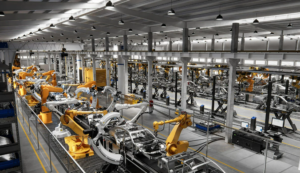In the fast-paced world of manufacturing, achieving and maintaining an efficient and operational factory takes a lot of hard work. You will need to work hard to ensure your factory is staying ahead of the game and is implementing any new practices to help boost efficiency. There are also many other practices that must be considered to ensure your factory is running as smoothly as possible. In this article, we will explore some of these practices so you can ensure your factory is running as efficiently as possible.

The backbone of any successful factory is its workforce. Hiring and retaining skilled, motivated, and well-trained employees is essential for smooth operations. You can speak to an Agency that can put forward qualified candidates that can fill the roles in your workforce. It is also important that you provide any necessary training for your employees to complete their duties to the best of their abilities. To ensure that your staff are working efficiently, you should try to foster a positive work environment that encourages collaboration and communication. By investing in your staff to become as efficient as possible, they can help to increase the profits of your company.

To ensure your workforce can work to the best of their abilities, they must be able to work with high-end equipment. If the machines in your factory are old and outdated, they may begin to operate a lot slower and cause a decrease in your overall efficiency. This is why it is important to purchase high-end equipment for your employees to use. Advanced technologies such as robotics can help to automate repetitive tasks and free up time for your employees to focus on other tasks. If you need to purchase new Bending Machines, you can contact a company such as cotswold-machinery-sales.co.uk/euromac-bending-machines/horizontal-bending-machines
Efficient factory management includes maintaining optimal inventory levels. Overstocking can lead to increased storage costs and product obsolescence. On the other hand, understocking on parts and materials can result in production delays, which can affect your end profits. You can implement computer systems to monitor what items you use the most, and you can then begin to stock your most used parts. You can also utilise just-in-time manufacturing principles to reduce excess inventory, minimise waste, and enhance your overall efficiency.